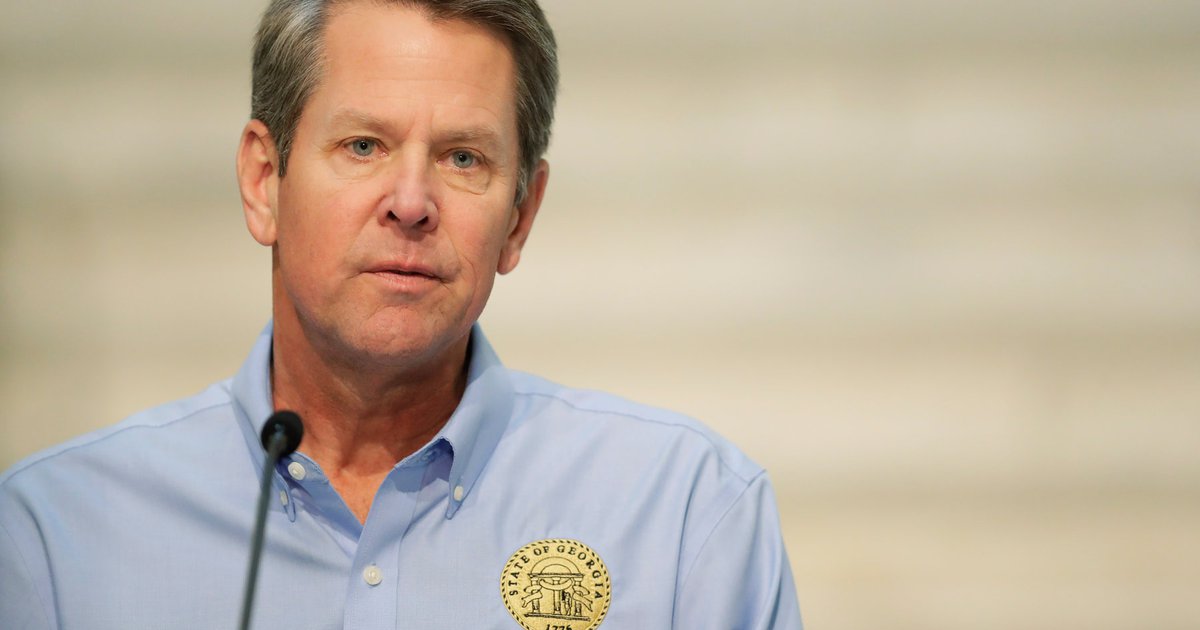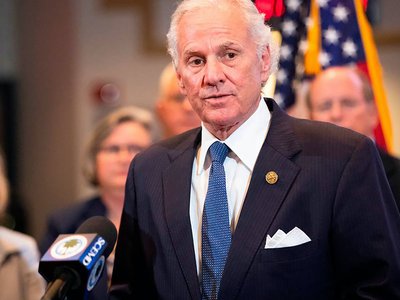Per The Atlanta Journal-Constitution:
Gov. Brian Kemp will back legislation to create an anti-gang unit in the state attorney general’s office and devote millions of dollars to hire dozens of technicians at the state’s overwhelmed crime lab.
The Republican also plans to include funding to train an additional Georgia State Patrol class of 75 cadets this year, along with a separate initiative to provide tuition-free education for technical college students pursuing law enforcement and criminal justice degrees.
And he will support a new crackdown on human trafficking that adds the crime to a list of violent offenses that require a superior court judge to require a defendant facing the charge to post bond to be released. It’s part of a yearslong effort spearheaded by his wife, Marty, to curb the crime.
“Making these commonsense, bipartisan reforms to our criminal justice system to protect our most vulnerable is yet another way we can work together to build a safer, stronger state for generations to come,” Kemp said in draft remarks.
The anti-gang unit is designed to allow Attorney General Chris Carr, a close political ally also facing a tough reelection campaign, more leeway to prosecute gangs statewide.
Kemp also backs legislation to give the attorney general more authority to work with state and local officials to prosecute gang-related crimes.
“In too many jurisdictions across our state, soft-on-crime local prosecutors have been unwilling to join our fight to rid their communities of these criminal networks,” Kemp said in draft remarks. “With many urban — and some rural — counties facing alarming levels of violent crime, we have the responsibility to act.”
Kemp and Carr both supported a similar anti-gang unit during the 2018 campaign as they emphasized the fight against gang violence. Top Democrats, too, have endorsed a similar initiative to help local prosecutors more aggressively combat gang members.
State legislative leaders have proposed new anti-crime efforts as well. House Speaker David Ralston backed a $1,000 bonus for law enforcement officers and more funding for mental health and public safety initiatives, while Lt. Gov. Geoff Duncan vouched for a new tax credit to help local authorities.
The governor’s plan to reduce a persistent backlog at the GBI crime lab includes funding to upgrade lab equipment, improve the agency’s headquarters and hire 32 additional staffers. It follows an October announcement that the state would use $110 million in coronavirus relief money to help court systems clear delays.
“Justice delayed is justice denied, and we will provide every resource necessary to ensure courts and prosecutors have the information they need,” Kemp said in draft remarks.
Atlanta, like other major U.S. cities, has struggled with a sharp rise in violent crime, and the issue dominated last year’s race for mayor. An investigation by The Atlanta Journal-Constitution showed that towns and cities across Georgia also are grappling with spikes in homicides and other violent crimes.
The governor will outline the policies Thursday during his annual State of the State speech, which will set the stage for the Republican’s agenda during what’s likely to be a chaotic election-year legislative session.
He’s also endorsed a proposal to allow Georgians to carry concealed handguns without permits, unveiled a $5,000 pay raise for state employees, vowed to hike teacher salaries $2,000 and supported legislation that would ban the teaching of critical race theory.
With challenges from Republican David Perdue on his right and Democrat Stacey Abrams on his left, Kemp is trying to navigate a tricky political path on his quest for a second term.
Perdue has criticized Kemp for not making an expansion of gun rights a more pressing political priority. Abrams, meanwhile, has advocated for a criminal justice overhaul that would eliminate cash bail, reduce penalties for some nonviolent offenses and make it easier for released inmates to find jobs.







